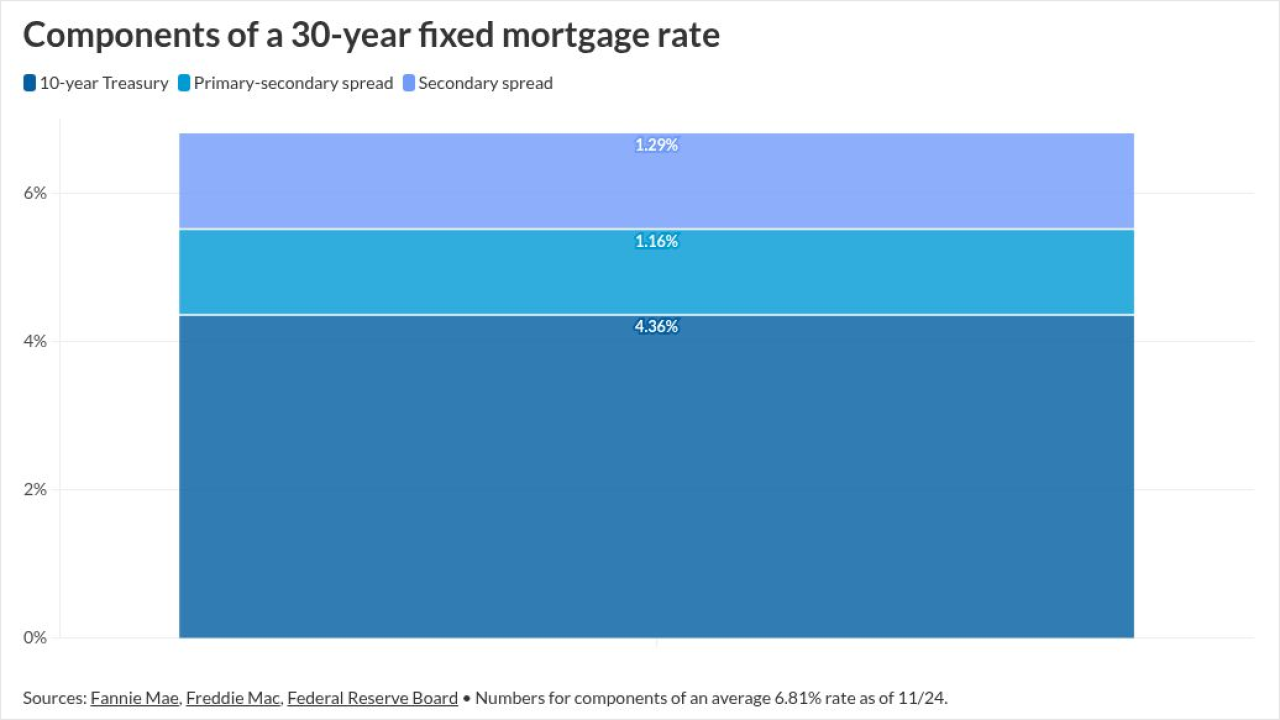Allianz chief economic adviser Mohamed El-Erian firmly believes the U.S. will be able to steer clear of a near-term recession before the 2020 federal elections.
But his assurances do not come without some caveats from the former CEO and chief investment officer of PIMCO, and ex-chair of President Obama’s Global Development Council.
“We won’t, unless you get a policy mistake or you get a massive market accident,” El-Erian said, speaking as the keynote at Monday’s ABS East securitization industry confab in Miami, hosted by the Information Management Network and its affiliated buy-side investor group, the Fixed Income Investor Network.
Among the triggers, he noted, would be a lengthy government shutdown or a global “liquidity shock” from restriction of cash flow and credit into markets, based on central bank actions. While long shots, neither scenario was dismissed out of hand by El-Erian.
El-Erian’s no-recession prediction was at odds with a large portion of listeners of his address for the 25th annual ABS East show. Voting via a live interactive poll of in-person and online attendees of the live-streamed discussion from the Fontainebleau Miami Beach resort conference center resulted in 37% of participants – the largest plurality of voters in the poll – predicting a recession before November 2020.
El-Erian noted that while there are “many signs” of an impending recession, whether they are “false indicators or not is the big question,” he said.
“Yield curve, level of yields, manufacturing activities...I would argue that most of them do not actually predict a recession,” at least in isolation, El-Erian said. For instance, a factor in the inverted yield curve trend (where short-term Treasury rates are producing higher yields than longer-term) are market woes emanating from Europe.
“You can’t understand what’s happening in the U.S. without understanding what’s happening in Europe. And Europe is a total mess,” he said.
El-Erian’s keynote address began after the morning news jolt of an IHS Markit report showing clear signs of an oncoming recession in Germany, which has Europe’s largest economy. Germany’s manufacturing slump accelerated with September’s month-over-month activity shrinking at the fastest pace in over a decade, according to Bloomberg.
“Today’s numbers in Germany are even worse than bad expectations,” said El-Erian. That indicates Germany is going into recession, and Europe is going into "stall speed growth," or growth under 1% GDP, which "increases sensitivity to accidents."
Add to that the European Central Bank's further pursuit of deeper negative rates to encourage lending, then "what happens in Europe doesn’t stay in Europe. It comes here. And It depresses the level of yields and it inverts our yield curve.”
"So bottom line, yes, the yield does seem to indicate recession, but it doesn't really."

The second recessionary indicator is also not as conclusive as it appears, he said. While the U.S.' manufacturing sector is slowing, it is part of a global phenomenon (see Germany). "Remember the U.S. is a domestic oriented economy,” he said. “So while part of the U.S. economy suffers from what’s happening internationally, that should not drag down the rest of the economy."
But headwinds could still potentially develop - both of which would be self-inflicted.
Federal funding for the year is set to expire Sept. 30, barring stopgap measures by Congress. That could invoking the potential for another U.S. federal government shutdown last experienced in January of this year, representing a potential recessionary trigger, El-Arian said.
"What's a big policy mistake? For example, if we shut the government down for two to three months. If we talk ourselves into recession, which is a real risk," he said.
Also, "What about a market accident?” he said. “My biggest concern, and this applies to the markets you all deal in, is that we’ve overpromised liquidity as a marketplace.
“That the last few years where we’ve been able to rely on ample and predictable liquidity from central banks, [that] have enabled, empowered, conditioned – use whatever word you want – the whole system to promise too much liquidity. So what does a market accident look like? It’s a liquidity shock. That’s what would get us into a recession.”




